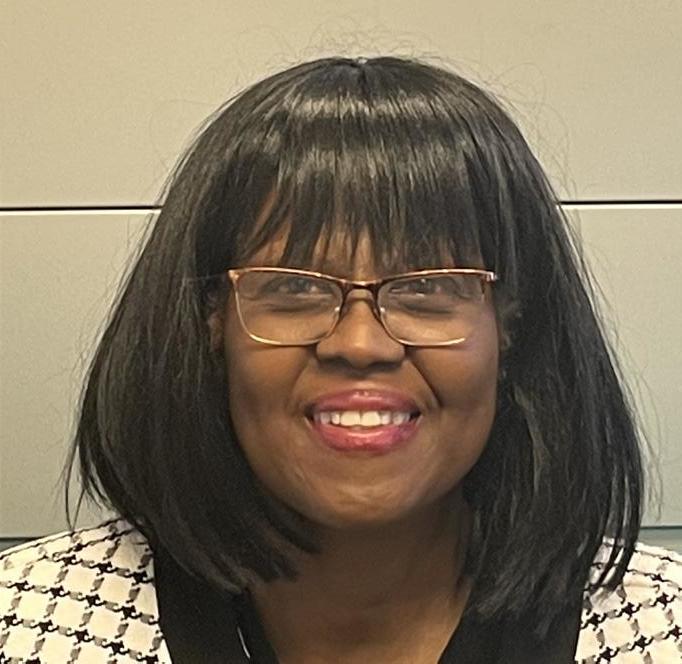
3 minute read
Course Offers Strategies for Successful Procurement
NAVIGATING PROCUREMENT: Ervin Hughes Jr., executive vice president of Level 3 Corporation, partnered with OBO to host Procurement Basics for Contractors. The free six-week course, held virtually, offered strategies for successfully competing for bids and growing one’s business. Photo taken pre-COVID.
By: Niyonsaba Magnifique
Advertisement
For many entrepreneurs, doing business with the government is a high priority. However, the government procurement process is competitive and bid awards are earned, not given. Contractors must demonstrate they have the expertise, equipment, and manpower to perform the scope of work on any desired contract. Successful contractors have insights on competing for bids; nonetheless, many small business owners struggle with navigating the government procurement process.
In Houston, local small business owners have been vocal about wanting to learn how to successfully bid in the City of Houston’s procurement process. Therefore, the Office of Business Opportunity and Level 3 Corporation partnered to offer, at no cost, Procurement Basics for Contractors (PBFC), a virtual training course to enhance the competitive contracting skills of new and existing contractors. The course was taught by Ervin Hughes Jr., the executive vice president of Level 3 Corporation, a minority-owned and woman-owned consulting firm that has been awarded approximately $3 million in government contracts.
In PBFC, Hughes coached contractors on six key topics essential to winning government contracts.
SIX WINNING STRATEGIES
1. Effective Bid Opportunity Review Strategies:
Contractors should only bid on contracts that match their core capabilities within the bid specifications. Additionally, it is imperative that apart from bidding on the lowest price, contractors show the added value they bring to the agency, such as fast delivery or longer warranties.
2. Understand Government Procurement Methods:
Businesses new to government contracting, should pursue informal bids to gain experience. Established contractors should illustrate proven experience when bidding.
3. Understand Contract Award Processes:
Contractors need to know two main stakeholders, the procurement officer and the “end user” department that utilizes the products/services, to determine what is important to the department/agency. Take a proactive approach to bidding, which requires research of the agency’s needs before it advertises the bid, versus a reactive approach, which is waiting for the agency to advertise a bid.
4. Determine a Commercially Useful Function (CUF):
On goal-oriented contracts, the prime contractors and subcontractors (subs) need to master the agency’s definition of commercially useful function before getting the contract. The primes must ensure the subs are certified to perform the work being subcontracted by including the subs’ NAICS Codes in the bid submission. Additionally, the subs must be equipped to self-perform the tasks without depending on the prime and the prime should understand how the agency tracks the payment on the contract, as it requires the dollar value allocated to the subs to commensurate with the work being performed.
5. Determine Contractor Responsibility:
Once a finalist, a contractor can be vetted for three things: financial capability, internal resources, and character. A procurement specialist will determine if the owner has the financial security to wait 30 days to receive payment from the agency without putting their business in jeopardy; possesses the equipment, experienced workforce and management required to perform the contract duties, and are current on tax and legal obligations through a background check.
6. Post Award Best Practices:
Once a bid has been awarded, Mr. Hughes advised contractors to seek a post award debrief meeting with the procurement officer who advertised the bid. The contractor who won the bid should seek to understand what they did well to position themselves for future success. Bidders who are unsuccessful in securing a contract should seek areas of improvement. A review of bid tabulations to determine the best pricing strategy, coupled with a meeting with the “end user” to better understand the department’s goals and future needs is a way to take the proactive approach.
Doing business with the government is not a mystery but requires hard work and perseverance to be successful. Researching an agency’s needs is one of the most important keys of effective bidding. Contractors need to present themselves as experts that will bring low prices and added value to the agency. As Mr. Hughes put it, “government contracting is a hustle, but it is worth it.”









